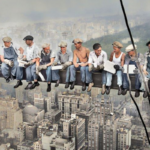In an era where political correctness shapes narratives and influences our everyday interactions, children’s literature has not been spared from scrutiny. Books once celebrated for their bold storytelling, imagination, and unfiltered perspectives have seen themselves caught in the crossfire of societal expectations and changing values. While these books may not conform to modern sensibilities, they provide a unique window into the cultural landscape of their time and challenge readers to engage critically with the world. Here, we explore ten politically incorrect kids’ books that have sparked conversations, debates, and, in many cases, outright controversy.
1. “The Adventures of Huckleberry Finn” by Mark Twain
Often celebrated for its bold narrative voice and critique of racism, this classic novel faces criticism for its use of racial slurs and portrayal of race relations. Twain’s work confronts the moral complexities of slavery and society, making it a vital yet contentious read for children today.
2. “Little Black Sambo” by Helen Bannerman
Originally published in 1899, this story about a young Indian boy features problematic stereotypes that reflect colonial attitudes. While it has been celebrated for its vibrant illustrations, many modern readers find the portrayal of characters offensive, leading to bans and revisions over the years.
3. “Peter Rabbit” by Beatrix Potter
Though beloved by many, Potter’s classic tale of mischief has faced criticism for promoting bad behavior. The character of Peter Rabbit disobeys his mother’s rules and braves dangers, raising questions about the messages conveyed regarding respect for authority and responsibility.
4. “The Cat in the Hat” by Dr. Seuss
While Dr. Seuss’s whimsical world is often cited for its creativity, some have argued that it perpetuates negative stereotypes, particularly through its portrayal of various ethnicities. Critics take issue with the book’s potential implications regarding race and cultural representation.
5. “Brown Bear, Brown Bear, What Do You See?” by Bill Martin Jr. and Eric Carle
This simple and repetitive children’s book has faced challenges due to Martin’s association with other works that are seen as politically incorrect. Although the book itself may not contain overtly offensive content, its connection to different narratives raises questions about which authors get a pass and which don’t.
6. “The Story of Little Black Sambo’s Revenge” by Trina Schart Hyman
While intended as a reimagining of Bannerman’s original tale, it still wrestles with heavy themes of race and identity. Critics argue that even retellings can sometimes reinforce harmful stereotypes, leading to ongoing discussions about how best to approach historically problematic texts.
7. “Where the Wild Things Are” by Maurice Sendak
Though widely adored, this tale about a boy’s adventures with monstrous creatures stirs debate on themes of wildness, anger, and authority. Some interpretations suggest it may display behavior that is unfit for children, promoting disobedience and aggression.
8. “The Snowy Day” by Ezra Jack Keats
While often praised for its depiction of a young boy of color experiencing a snow day, the book has also faced critique regarding its simplicity and the lack of cultural context. It has opened dialogues about representation in children’s literature and how to authentically celebrate diversity without falling into stereotypes.
9. “Pippi Longstocking” by Astrid Lindgren
Pippi, the unconventional and free-spirited girl, has delighted and shocked readers for generations. Her behavior, which often defies norms, challenges established social structures. Critics argue that her disregard for rules may send the wrong message to children about authority and boundaries.
10. “Charlie and the Chocolate Factory” by Roald Dahl
Dahl’s beloved tale is not without controversy. Some critics point to its portrayal of characters and themes that reinforce cultural stereotypes, particularly in the portrayal of the Oompa-Loompas. The story invites reflection on how we engage with diverse narratives and the potential implications of their portrayals.



GIPHY App Key not set. Please check settings